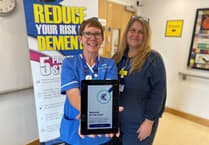In a new report out today from Healthwatch Somerset, young people are calling on the county’s health and social care services to improve how they communicate – with each other and with young people – to improve how they care.
Between January and July 2021, Healthwatch Somerset recruited and trained a group of nine volunteer Young Listeners from across Somerset, aged 12 to 18.
The Young Listeners designed and delivered a peer-to-peer engagement project to find out what it is like to be a young person using health and social care services in Somerset.
In August and September 2021, they gathered feedback from 65 young people via face-to-face and online meetings and events, and an online survey.
They talked about the barriers and challenges they face when seeking support, and the changes they want to see to make services work better for young people.
Key themes were identified and, in response, the Young Listeners have made recommendations for how Somerset’s health and care services can develop to address young people’s needs and concerns.
They have shared their findings and recommendations with Somerset’s Health and Wellbeing Board, Somerset County Council, and Somerset’s NHS Clinical Commissioning Group.
The key themes were:
* Lack of communication between services: 41 per cent of young people said they had to repeat their symptoms and story to each service they used, even if they had been referred by their GP or another service.
* Poor communication with young people: This was one of the most common issues raised including by those moving from children to adult care services. Young people often felt forgotten, not listened to, and not involved in decisions about their care, leading to distrust of health and care services.
One said: “After a GP laughed at me, it took me a long time to recover and feel confident in going to healthcare staff with a problem."
* Not enough information about health and care services in schools, colleges, and universities: Over half of the young people were concerned that they could not find the information they needed in school or college about health and care and the services available.
* Services are not promoted in ways that are appropriate, accessible, or inclusive of young people: A common concern was that services are not promoted using the online channels that young people increasingly use, which makes it difficult for them to find information and answers.
Becky Applewood, deputy director for women’s and children’s health, NHS Somerset Clinical Commissioning Group said: "The insight from this report shows just how important it is to ensure children and young people are at the centre of the work we do and that we really listen to their experiences and observations.
“Our services need to properly meet the needs of children and young people, not the organisations, and this can only be achieved by working with and listening to them.
“The report also shows how, when we deliver any of our health services, we have to think about the child or young person holistically, considering both their mental and physical health so we achieve the best outcome for them.
“It is really important that we join up our health and care services so that children and young people in Somerset are able to easily access what they need, making sure that early help is available before things worsen."
To read the report to find out more go to: Young Listeners Project - Sharing young people’s feedback to improve the health and social care services they use.

-Rachel-Gilmour-MP-Gideon-Amos-MP-Ashley-F.jpeg?width=209&height=140&crop=209:145,smart&quality=75)



Comments
This article has no comments yet. Be the first to leave a comment.